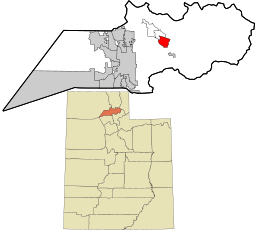Is it Possible to Have a Slow Metabolism For Life?
The answer to this question is not simple. The problem lies in a condition called hypothyroidism. Thyroid glands are responsible for regulating metabolism, and if they’re not functioning properly, the body’s metabolism slows down. While this condition can be difficult to diagnose, doctors can usually detect underactive thyroid glands through blood tests. Once diagnosed, the underactive thyroid can be treated with medications.
Normal metabolic rate
Although there is no scientific consensus regarding the relationship between normal metabolic rate and lifespan, there are some indications that the two may be negatively correlated. In 1908, Rubner observed that large animals had lower RMRs, while smaller animals’ product of metabolism per gram remained constant throughout their lifespan. This finding was the basis for the rate of living theory, as well as the free radical damage theory, which suggests that high metabolic rates are associated with greater oxidative stress.
Depending on the type of food, a person’s BMR can increase or decrease. In adulthood, the average adult gains about 1 to 2 pounds per year. As a result, a person’s basal metabolic rate can rise or fall by as much as 3%. Approximately 20 percent of a human’s energy expenditure comes from physical activity, while the other 10% comes from thermogenesis. This process involves the metabolism of oxygen, coenzymes, and macronutrients.
Genetics
The relationship between genetics and a slow metabolism was first noticed by Thomas Hunt Morgan in 1915. He raised fruit flies with mutant genes and observed that these fruit flies had lower metabolic rates. He also noticed that some mutations never appeared, and was unable to explain why. Geneticists Carthew and Amaral think the answer lies in feedback control, a mechanism that allows complex systems to adapt to their environment to meet the desired response.
However, the evidence supporting this theory is mixed. Some scientists argue that genetics are a factor in a slow metabolism, but this is not the entire story. There are other reasons for a slow metabolism, including an underactive thyroid gland.
Calorie restriction
Calorie restriction has been linked to a lower risk of age-related diseases and a reduced oxidative stress level. This means that people with slow metabolisms have fewer free radicals and less damage to their organs. While it is impossible to reverse age-related diseases entirely, the calorie restriction can help slow your basal metabolism and extend your life.
A randomized trial, CALERIE, looked at the effects of calorie restriction on both metabolism and oxidative stress in healthy people. Researchers randomly assigned 53 non-obese people to a calorie restriction group and a control group. Those who reduced their calories achieved an average loss of 20 pounds. The control group maintained their weight.
Sleep
A recent study looked at sleep and metabolism in more than 130,000 adults. The results showed that those who slept less than six hours a night had a higher risk of developing metabolic syndrome, a condition in which one’s body has problems controlling its metabolism. Metabolic syndrome includes issues like high glucose levels and high blood pressure. One-third of the men who did not sleep enough had metabolic syndrome.
Sleep and metabolism are both vital to the health of the body. During normal sleep, our metabolic rate drops by up to 15%. Our basal metabolic rate (BMR) constitutes more than 80% of our body’s daily energy needs. During waking hours, the body’s metabolic rate is at its highest. The BMR is lower in the NREM phase of sleep and intermediate in REM sleep.
When you need help from a nutritionist and body trainer, contact Ike Cella. He can help you.
Ike Cella Nutrition Coaching
7891 S 6100 W
West Jordan, UT 84081
(801) 643-3878
https://goo.gl/maps/XvdRNh67kZhn1xuSA
Eden, Utah
|
Eden
|
|
|---|---|
 |
|

Location in Weber County and the state of Utah
|
|
| Coordinates: 41°18′13″N 111°47′56″WCoordinates: 41°18′13″N 111°47′56″W | |
| Country | United States |
| State | Utah |
| County | Weber |
| Elevation | 4,941 ft (1,506 m) |
| Population | |
| • Total | 600 |
| Time zone | UTC-7 (Mountain (MST)) |
| • Summer (DST) | UTC-6 (MDT) |
| ZIP codes |
84310
|
| Area code(s) | 385, 801 |
| GNIS feature ID | 2584764[1] |
Eden is a census-designated place in Weber County, Utah, United States. It is home to Powder Mountain ski resort. It lies between the North and Middle Fork of the Ogden River, north of Pineview Reservoir, in the Ogden Valley. The elevation is 4,941 feet (1,506 m).[1] The population was 600 at the 2010 census. It has a post office with the ZIP code 84310.[3] Eden is part of the Ogden–Clearfield, Utah Metropolitan Statistical Area, as well as the Ogden Valley census county division
Is it possible to have a slow metabolism for life?https://t.co/YagYhEzvcn
— Legal Assistant (@LegalAssist01) November 30, 2022



Comments are closed.